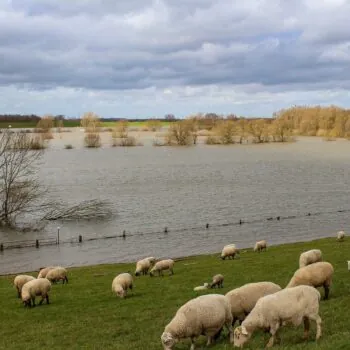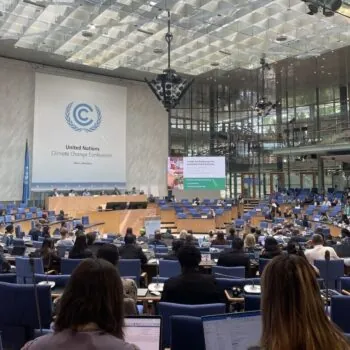Today the Intergovernmental Panel on Climate Change (IPCC) launched their special report on global warming of 1.5°C, showing climate risks are worse than we thought.
The report demonstrates that allowing global temperatures to rise near 2°C is not safe. Already with only 1°C of warming the world is seeing far greater risks of extreme weather events, loss of sea ice and increased sea level rise than was predicted even just five years ago. These impacts are already causing major economic damage and social disruption, including increased migration and instability across the globe. The IPCC warns that at temperatures above 1.5°C there is a significant chance of breaching significant “tipping points” in major ecosystems like coral reefs. Temperature increases will also cause instability in Antarctic ice sheets. We simply cannot afford to take this risk.
Miracle technologies won’t get us out of this fix
Currently, we are heading for more than 3°C of warming around the world. Rapid action is the only way to change course. The IPCC report shows, keeping temperatures below 1.5°C is technically and economically possible, but requires fundamental changes in all countries on an unprecedented timescale.
The special report cautions against a wait-to-act-now mentality and further emphasizes the risks of relying on technology to deliver large scale “negative greenhouse gas emissions” sometime in the future.
Such technologies may emerge, but they are too risky to rely on for current action. Some, like large scale CCS and biomass, are technologically available but deploying them at scale sustainably will be a huge challenge.
Instead, countries will need to immediately scale-up existing technological solutions which can reliably put the world on track to a 1.5°C future over the next two decades. Simultaneously, there must be increased investment in innovation and new technologies to deliver better solutions in sectors like aviation and agriculture, ensuring the world will reliably reach net zero emissions by 2050.
The good news is taking faster action to tackle climate change will immediately bring significant benefits. For example, by reducing impacts on health from air pollution and generating economic paybacks from more efficiently using resources. Setting clear expectations for future climate action will also provide more certainty for investors and companies, lowering risk and liberating a wave of productive investment.
Taking our time won’t help either
The IPCC report shows going slowly is not safe. To protect everyone from extreme climate risks we need a much faster transition to a net zero emissions economy. But protecting the majority cannot come at the expense of the minority of workers and communities currently dependent on fossil fuel related industries. Countries, regions, companies and investors must all develop practical plans for helping everyone to benefit from the transition to new, clean economic opportunities.
In response to the IPCC report, all countries should now align their national emissions reduction pledges (also known as Nationally Determined Contributions) under the Paris Agreement with the 1.5°C goal when they resubmit them to the United Nations in 2020. Furthermore, all countries should set consistent long-term commitments to ensure their economies reach net zero greenhouse gas emissions in the future. For developed countries this means going net zero well before 2050.
We need to generate the political will to make these choices
Making these political decisions will not be easy. At a time of geopolitical uncertainty countries will undoubtably worry others are not doing their fair share. With rising global trade tensions there is a temptation to look inward and invest in existing dirty industries instead of the clean markets of the future. Owners of fossil fuel assets will resist change, as they will be unable to cash-in on the value of many of their investments in a 1.5°C world.
Delaying climate action will not save countries money but it will raise climate costs. Delivering the required change requires the broad majority in countries being impacted by extreme climate change to make their voices heard. We need their loud support to drive the 1.5°C transition. This is the true challenge of staying below the 1.5°C limit.
The IPCC report shows keeping climate change below 1.5°C is necessary, feasible and beneficial. Leaders have a clear choice: will they decide to accelerate climate action and protect all their citizens from harm, or will they support the minority with interests in the old polluting economy. The first test to see what side politicians are on will be if rich countries commit to ensuring their economies reach net zero emissions before 2050. Until then, we have a lot of work to do.


